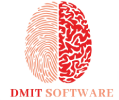Introduction
In the realm of self-discovery and personal development, various tests and assessments have gained popularity. One such test is the Dermatoglyphics Multiple Intelligence Test (DMIT). This article aims to explore the DMIT test and compare it with other types of tests commonly used for personality assessment, intelligence evaluation, and aptitude determination.
Understanding DMIT Test
The DMIT test is based on the science of dermatoglyphics, which studies the patterns of ridges and furrows on fingertips, palms, toes, and soles. These patterns are unique to each individual and remain unchanged throughout their life. The DMIT test analyzes these patterns to unveil a person’s innate potential, strengths, and weaknesses across various intelligences and personality traits.
Benefits of DMIT Test
The DMIT test offers several advantages for individuals seeking self-awareness and personal growth. Some key benefits include:
- Self-Discovery: The DMIT test provides insights into an individual’s multiple intelligences, helping them understand their natural inclinations and talents.
- Personalized Education: By identifying an individual’s dominant intelligences, the DMIT test can guide educators in tailoring teaching methods to suit their specific learning style.
- Career Guidance: The test results can assist in career planning by highlighting areas where an individual is likely to excel, enabling them to make informed decisions about their professional path.
- Improved Relationships: Understanding one’s personality traits through the DMIT test can enhance communication and relationships by promoting self-awareness and empathy.
Comparison with Other Tests
1. Personality Tests
Traditional personality tests, such as the Myers-Briggs Type Indicator (MBTI) or the Big Five Personality Traits assessment, focus on understanding an individual’s character and behavioral tendencies. While these tests are valuable, they primarily address personality traits and preferences, whereas the DMIT test provides a broader view of innate intelligences and potential.
2. Intelligence Tests
Intelligence tests, like the Stanford-Binet or Wechsler Intelligence Scale, measure cognitive abilities, problem-solving skills, and general intelligence quotient (IQ). While these tests evaluate intellectual capacities, the DMIT test takes a more holistic approach by incorporating multiple intelligences, including logical-mathematical, linguistic, musical, spatial, bodily-kinesthetic, interpersonal, intrapersonal, and naturalistic intelligences.
3. Aptitude Tests
Aptitude tests assess an individual’s potential to acquire specific skills or perform well in certain areas. These tests are often used in educational and career contexts to determine a person’s suitability for a particular field. While aptitude tests focus on specific abilities, the DMIT test provides a broader understanding of an individual’s inherent potential across various intelligences, offering valuable insights for both personal and professional development.
Conclusion
The DMIT test stands apart from other assessments by providing a comprehensive understanding of an individual’s innate potential, multiple intelligences, and personality traits. By incorporating the science of dermatoglyphics, this test offers unique insights that can assist individuals in making informed decisions about their education, career, and personal growth.
FAQs (Frequently Asked Questions)
Q1: How long does a DMIT test usually take?
A1: The duration of a DMIT test can vary, but it typically takes around 30 to 60 minutes to complete the assessment.
Q2: Is the DMIT test scientifically validated?
A2: Yes, the DMIT test is based on scientific research in the field of dermatoglyphics, and its validity has been supported by various studies.
Q3: Can the DMIT test accurately predict a person’s career success?
A3: While the DMIT test provides insights into an individual’s strengths and potential, career success depends on various factors, including dedication, effort, and external circumstances.
Q4: Are DMIT test results permanent?
A4: Yes, the patterns analyzed in the DMIT test are unique to each individual and remain constant throughout their lifetime.
Q5: Is the DMIT test suitable for all age groups?
A5: Yes, the DMIT test can be beneficial for individuals of all age groups, including children, teenagers, and adults, as it provides insights into innate potential and preferred learning styles.
